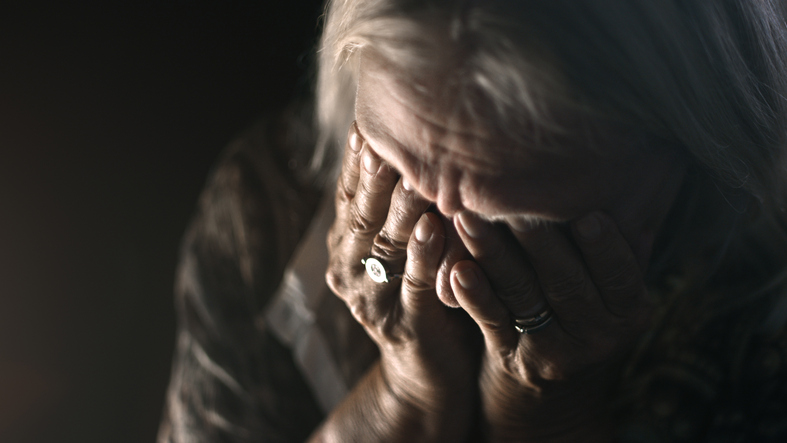How to Report Nursing Home Abuse in Virginia
Justin Sheldon—November 18, 2022

Sadly, nursing home abuse is not only a reality but could be considered an epidemic of sorts, impacting nursing home residents and their families across the country every single day. According to Nursing Home Abuse Justice[1], a platform dedicated to providing information and support to victims of nursing home abuse, over 15,000 complaints about abuse or neglect were filed in 2020 alone. In many cases, these crimes often go unreported, either out of fear or because the victim is unable to communicate what has happened to them. If you or a loved one is a victim of nursing home abuse in Virginia, it’s important to know how to report the crime and get the help you need.
Recognizing and Understanding Nursing Home Abuse
The first step in being able to report nursing home abuse is recognizing that it’s happening. This isn’t always as simple as it sounds. Unfortunately, there are many forms that nursing home abuse can take, which is why it’s important to be aware of the signs. A 2018 report by the National Center for Victims of Crime[2] (NCVC), identified the most common types of nursing home abuse as:
- Physical abuse (29%): This includes any type of unwanted physical contact, such as hitting, slapping, shoving, or forcefully restraining a resident.
- Resident-on-resident abuse (physical or sexual) (22%): Unfortunately, fellow residents can also be abusive. This type of abuse can take the form of sexual assault or unwanted physical contact.
- Psychological abuse (21%): includes anything that could cause psychological distress or trauma, such as intimidation, threats, name-calling, or isolating a resident from their friends or family. This can also be very difficult to identify, as it doesn’t leave physical marks.
- Neglect (14%): Neglect occurs when a nursing home staff member fails to provide the necessary care to a resident. This includes things like not providing enough food or water, failing to help with hygiene, or failing to provide necessary medical care.
- Sexual abuse (7%): Any type of sexual contact or conduct with a nursing home resident without their consent, including rape, molestation, or forcing the resident to view pornography.
- Financial abuse (7%): This is when a nursing home employee or staff member unlawfully takes advantage of a resident’s finances, such as by stealing money or using the resident’s credit card without permission. Additional examples might be writing bad checks or cashing social security or retirement checks without their knowledge.
Common signs of elder abuse in a nursing home abuse can include unexplained bruises or injuries, sprains, dislocations, broken bones, burns, bed sores, weight loss, poor hygiene, sudden changes in behavior, anxiety and/or depression, or sexually transmitted diseases. Often if the victim already suffers from dementia or Alzheimer’s disease, they may have difficulty communicating what has happened to them.
If you see any of these signs of abuse, it’s important to act immediately and report the abuse to the appropriate authorities.
Steps You Can Take To Report Nursing Home Abuse In Virginia
If you suspect that a loved one is the victim of nursing home abuse, there are a few things you can do to get more information and gather evidence. First, try to talk to your loved one about what’s going on. It’s also important to speak to the staff at the nursing home. See if they have noticed any changes in your loved one’s behavior or appearance. If they have, try to get more information about what they saw and when it happened. You should also ask for a copy of the facility’s policies on reporting abuse and get contact information for the facility’s administrator.
File a Complaint with the Virginia Department of Health
The Virginia Department of Health regulates all nursing homes in the state and is responsible for investigating any complaints of abuse or neglect. If you believe that a nursing home resident is being abused, neglected, or exploited, you can file a complaint with the department by calling their hotline at 1-800-955-1819. You can also file a complaint online at the Virginia Department of Health website. The department will then investigate the complaint, which can include random inspections of the facility, interviews with staff and residents, and a review of records. If they find evidence of abuse or neglect, they will take appropriate actions, which can include actions up to the revocation of the nursing home’s ability to accept patients on Medicare and Medicaid.
Contact the Elder Abuse Hotline
Virginia also has a dedicated Elder Abuse Hotline that you can call if you have any concerns about elder abuse, neglect, or exploitation in a nursing home. This is part of the Adult Protective Services, which investigates reports of abuse, neglect, and exploitation of adults 60 years of age or older. The hotline is available 24 hours a day, 7 days a week, and can be reached at 1-888-832-3858. It’s staffed by trained professionals who can help you determine what steps to take next and can provide referrals to other services if needed.
File a Police Report
In addition to contacting Virginia’s Elder Abuse Hotline and/or filing a complaint with the Virginia Department of Health, you can also file a police report if you believe that a crime has been committed. For example, if you believe that a nursing home resident has been physically or sexually abused, you would file a police report for assault. If you believe that a nursing home resident is being exploited financially, you would file a police report for fraud.
Whatever the particular abuse might be, it’s important to take action by registering complaints with the appropriate agencies and/or filing police reports. This will be critical should you decide to pursue any legal action against the nursing home.
How a Personal Injury Lawyer Can Help with Nursing Home Abuse Cases
Nursing home abuse is not always a simple thing to prove even if there are clear signs that something is wrong. Victims may have been threatened and fearful of retribution or may be unable to communicate what has happened to them. That’s why it’s important to have an experienced personal injury lawyer on your side who can help protect your rights and investigate the nursing home abuse allegations. A skilled lawyer will gather evidence, interview witnesses, and work with experts to build a strong case on your behalf. They can also negotiate with insurance companies and represent you and your loved one’s interests in court, if necessary.
The Law Offices of Breit Biniazan Can Help You with Your Nursing Home Abuse Claim
If you or a loved one has been the victim of nursing home abuse in Virginia, you or your loved one may be entitled to compensation for injuries. The experienced personal injury attorneys at Breit Biniazan can help you investigate your claim and hold the responsible parties accountable. We understand the complex issues involved and will fight hard to get you the compensation you deserve. Contact us today at (855) 212-8200 or online to schedule your consultation.
Citations & Sources
[1] Nursing Home Abuse Justice
[2] National Center for Victims of Crime
By Justin Sheldon
Partner
Justin Sheldon's law career of over ten years began with a sympathy for those who had been injured and a passion for representing those injury victims. With years of experience, ongoing legal education, and various awards winnings, Justin provides the expert and fierce legal representation that Virginia personal injury victims both require and deserve.
Categories:
Office Locations
Related Posts
Categories
We are personal injury attorneys
Fill out our contact form to speak to our experienced Virginia trial attorneys. Breit Biniazan has helped recover millions of dollars in cases. Learn how we can help you today.
